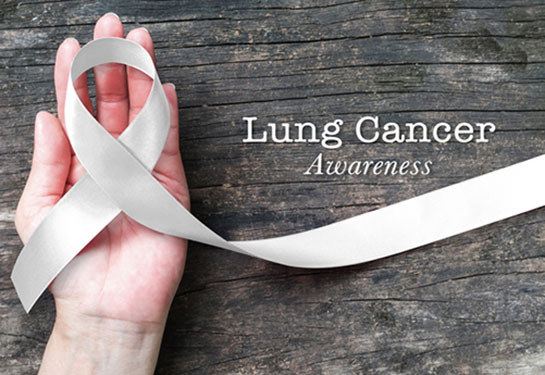Red Blood Cell Disorders
We offer the highest level of care for all types of red blood cell disorders. We provide diagnosis, treatment and support options customized just for you.
Medically reviewed by Brian Jonas, M.D. on Oct. 12, 2023.

Your Partners in Treatment of Red Blood Cell Disorders
At UC Davis Division of Hematology and Oncology, our experienced blood disorder physicians (hematologists) specialize in diagnosing and treating red blood cell disorders. We provide compassionate care for all types of red blood cell conditions.
What Are Red Blood Cell Disorders?
Red blood cells (RBCs), also called erythrocytes, carry oxygen from your lungs to the tissues in your body. Your tissues use this oxygen to create energy and get rid of waste (carbon dioxide). Your red blood cells then carry the carbon dioxide to your lungs, where you exhale it.
Red blood cell disorders may occur when you have too many RBCs (polycythemia or erythrocytosis) or not enough RBCs (anemia).
Red blood cell disorders cause all kinds of serious symptoms. It can be scary when you don’t know what’s happening.
Symptoms of Red Blood Cell Disorders
Symptoms vary based on the underlying cause and type of red blood cell disorder that you have. Some people may not have any symptoms.
Common Symptoms of Polycythemia
If you have too many RBCs, you may experience:
- Blurry vision
- Itchy skin
- Joint pain
- Fatigue
- Headache
- Low energy
- Nosebleeds
- Numbness
- Shortness of breath
- Sleep problems
Common Symptoms of Anemia
If you don’t have enough RBCs, you may experience:
- Chest pain
- Cold feet and hands
- Dizziness
- Fatigue
- Headache
- Irregular or fast heartbeat
- Muscle weakness
- Pale skin
- Shortness of breath
Causes of Red Blood Cell Disorders
There are some factors that can cause you to have too many red blood cells (polycythemia) or too few red blood cells (anemia).
Causes of Polycythemia
Cancer
Certain types of cancer, including hepatocellular carcinoma, polycythemia vera and renal cell carcinoma, cause an increased red blood cell count.
Congenital Heart Disease
Some types of heart disease present at birth can increase your number of red blood cells.
Dehydration
Not drinking enough water or other fluids may lead to a high red blood cell count.
Heart Failure
Heart failure that results in low amounts of oxygen in your blood can increase your number of red blood cells.
Kidney Tumors
Having kidney tumors can increase your red blood cell count.
Living at a High Altitude
Spending an extended amount of time at high elevations can raise red blood cell count.
Lung Disease
Lung diseases such as COPD, emphysema and pulmonary fibrosis can lead to a high red blood cell count.
Performance-Enhancing Drugs
Taking anabolic steroids or a hormone that stimulates red blood cell production (erythropoietin) can raise your number or red blood cells.
Sleep Apnea
A disruption to your breathing while you sleep (sleep apnea) can cause you to produce a high level of red blood cells.
Smoking
Smoking cigarettes can increase your number of red blood cells.
Causes of Anemia
Blood Loss
Losing excessive blood due to bleeding from cancer cells, heavy menstruation or a stomach ulcer may lead to a low number of red blood cells.
Cancer
Some types of cancer, especially blood cancer (leukemia and lymphoma), cervical cancer and colon cancer, may cause a decrease in red blood cells.
Cancer Treatment
Chemotherapy or radiation may reduce your number of red blood cells.
Chronic Kidney Disease
Having chronic kidney disease can lower red blood cell count.
Inflammation
Inflammation caused by an autoimmune disease or infection can result in lower red blood cell production.
Inherited Disorders
Having an inherited red blood cell disorder such as sickle cell disease or thalassemia lowers your number of red blood cells.
Lack of Vitamins or Minerals
Not consuming enough nutrients such as iron, folic acid and vitamin B12 can cause low numbers of red blood cells.
Diagnosing and Testing for Red Blood Cell Disorders
Blood tests can help us diagnose a red blood cell disorder. Your provider may recommend getting:
- Complete blood cell count (CBC): This test shows your percentage of RBCs (hematocrit) and levels of hemoglobin.
- Peripheral blood smear: We look at a blood sample under a microscope to see the size and shape of RBCs.
- Reticulocyte count: This test looks at the number of new red blood cells (reticulocytes) produced by your bone marrow.
- Bone marrow biopsy: If the above tests show a high or low number of red blood cells, we may remove a sample of your bone marrow tissue to look for abnormal blood cells.
- Other blood tests: We can measure your levels of folic acid, vitamin B12, iron, and erythropoietin to see if these may be causing problems with red blood cell production.
Red Blood Cell Disorders Treatments
At UC Davis Health, our hematologists focus on treating red blood cell conditions. We work with you to create a treatment plan to address your specific condition. Treatments that we offer include:
Blood Transfusion
A blood transfusion replaces damaged red blood cells with healthy cells from a donor.
Corticosteroids
These medications suppress your immune system and can increase your red blood cell count.
Dietary Changes
We may recommend changes to your diet to help treat anemia.
Growth Factor Supplementation
These medications, including erythropoietin-stimulating agents, can stimulate your bone marrow to make more red blood cells.
Hydroxyurea Therapy
This cancer medication treats sickle cell anemia, and your provider may also use it to lower red blood cell count.
Nutritional Supplements
Taking iron, folic acid or vitamin B12 supplements may help increase your red blood cell count. We can also give you iron through your veins (infusion) and vitamin B12 as an injection.
Phlebotomy
We can regularly take blood from your veins to remove extra red blood cells if you have polycythemia vera.
Polycythemia Medications
Certain medications can help to lower your red blood cell count.
Stem Cell Transplant
We can replace your bone marrow with healthy bone marrow from a donor to help you produce normal red blood cells.
Preventing Red Blood Cell Disorders
You can’t always lower your risk of red blood cell disorders. But certain steps can help you to stay healthier:
Avoid Performance-Enhancing Drugs
Staying away from anabolic steroids and other performance-enhancing drugs reduces polycythemia risk.
Drink Enough Water
Staying hydrated by drinking water and avoiding coffee and soda can help to prevent polycythemia.
Eat a Healthy Diet
Consuming foods that include iron, folate and vitamin B12 can help to prevent anemia.
Limit Exposure to High Altitudes
Reducing your time in environments with high altitudes can help you maintain regular red blood cell levels.
Quit Smoking
Not smoking can help keep your RBC levels in check.
Normal red blood cell count in women
4.2-5.4MRed cells per microliter of blood
Normal red blood cell count in men
4.7-6.1MRed cells per microliter of blood
Source: Leukemia & Lymphoma Society: Understanding Blood Counts
Request an Appointment
As Sacramento's No. 1 hospital, you'll benefit from unique advantages in primary care and specialty care. This includes prevention, diagnosis and treatment options from experts in 150 specialties.
Referring Physicians
To refer a patient, submit an electronic referral form or call.
800-4-UCDAVIS
Patients
Call to make an appointment.
Consumer Resource Center
800-2-UCDAVIS

Ranked among the nation’s best hospitals
A U.S. News & World Report best hospital in cardiology, heart & vascular surgery, diabetes & endocrinology, ENT, geriatrics, neurology & neurosurgery, and pulmonology & lung surgery.

Ranked among the nation’s best children’s hospitals
U.S. News & World Report ranked UC Davis Children’s Hospital among the best in pediatric nephrology, orthopedics*, and pulmonology & lung surgery. (*Together with Shriners Children’s Northern California)

Ranked Sacramento’s #1 hospital
Ranked Sacramento’s #1 hospital by U.S. News, and high-performing in aortic valve surgery, back surgery (spinal fusion), COPD, colon cancer surgery, diabetes, gynecological cancer surgery, heart arrhythmia, heart failure, kidney failure, leukemia, lymphoma & myeloma, lung cancer surgery, pacemaker implantation, pneumonia, prostate cancer surgery, stroke, TAVR, cancer, orthopedics, gastroenterology & GI surgery, and urology.

The nation’s highest nursing honor
UC Davis Medical Center has received Magnet® recognition, the nation’s highest honor for nursing excellence.

World-class cancer care
One of ~59 U.S. cancer centers designated “comprehensive” by the National Cancer Institute.

A leader in health care equality
For the 13th consecutive year, UC Davis Medical Center has been recognized as an LGBTQ+ Healthcare Equality Leader by the educational arm of America’s largest civil rights organization.

